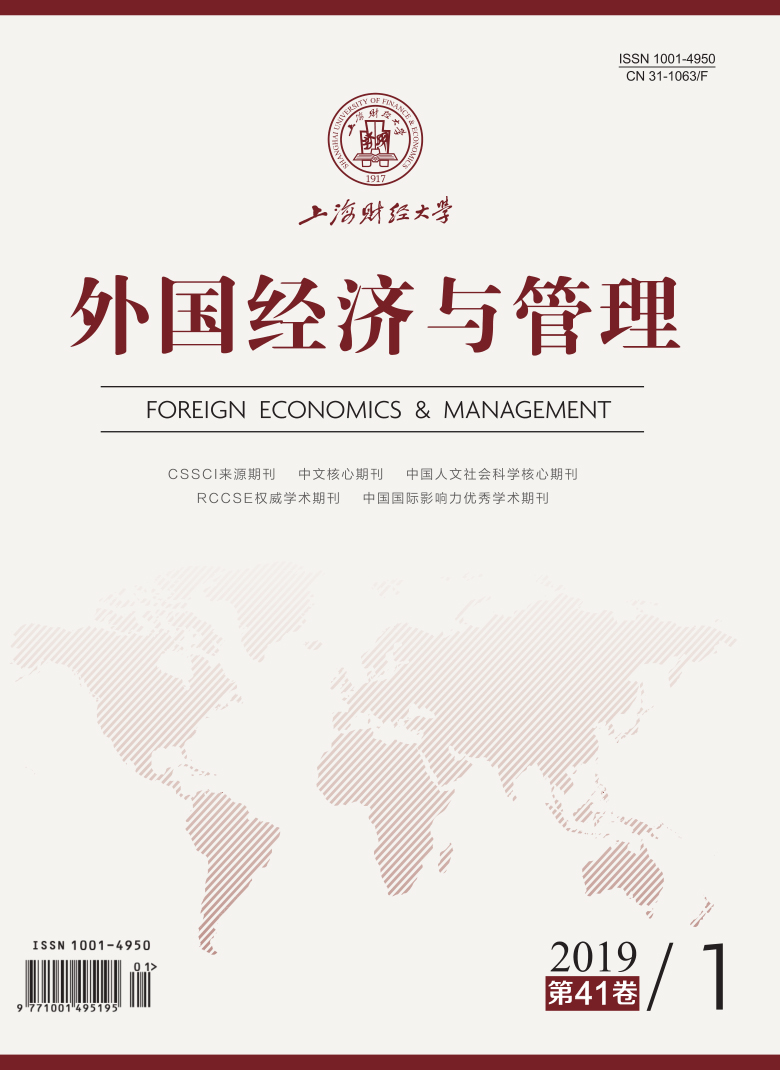In the era of value co-creation, the organization and its customers create values together. This also requires the organization to focus on the resonance of values between its customers and itself while building culture or shaping core values, so as to enable itself to achieve sustainable competitive advantages, and create maximum values. Compared with traditional organizational core values, the connotation of organizational core values and evaluation systems under the background of value co-creation will be changed radically. Based on the rooted theory, this paper takes three private, state-owned and mixed enterprises as the object of the multi-case study. Through the three stages of initial coding, focused coding and theoretical coding, the connotation of organizational core values in the context of value co-creation is redefined. The beliefs and concepts formed in the long-term interaction between the organization and its customers are recognized by employees and customers, and they are the core criteria for judging behavior. On this basis, a universal, logical and systematic evaluation system of organizational core values is further summarized and constructed, and six main dimensions have been refined: customer, responsibility, team, innovation, humanism and win-win. Meanwhile, 18 specific indicators are identified: Customer dimension includes three specific evaluation indicators: customer service, customer value and customer relationship; responsibility dimension includes three specific evaluation indicators: initiative, responsibility and execution; team dimension includes three specific evaluation indicators: team consciousness, team cooperation and external cooperation; innovation dimension includes three specific evaluation indicators: innovation consciousness, improvement of management and innovation of products and sevices; humanistic dimension includes three specific evaluation indicators: moral and talent, identity development and value contribution; win-win dimension includes three specific evaluation indicators: conceptual consensus, cooperative development and benefit sharing. This paper defines six dimensions and related indicators of organizational core values, defines the evaluation mechanism of organizational core values based on the practice of enterprises and previous theoretical literature, and uses the commonly used 3-point system or 5-point system for specific evaluation based on the definition of dimensions and indicators. This study can provide guidance for the core-value-shaping and soft-power-building of the organization in the era of value co-creation.
 / Journals / Foreign Economics & Management
/ Journals / Foreign Economics & ManagementForeign Economics & Management
JIN Yuying, Editor-in-Chief
ZhengChunrong, Vice Executive Editor-in-Chief
YinHuifang HeXiaogang LiuJianguo, Vice Editor-in-Chief
The Connotation and Evaluation Index of Organizational Core Values: A Multi-case Study Based on Value Co-creation
Foreign Economics & Management Vol. 41, Issue 01, pp. 86 - 101 (2019) DOI:10.16538/j.cnki.fem.2019.01.007
Summary
References
Summary
[1] Chen Chunhua, Liu Zhen. Alibaba: Using values to lead "informal economic undertakings" [J]. Chinese Journal of Management,2013(01):22-29.
[2] Long Lirong, Zhao Huijuan. Individual-Organizational value matching research: The advantage effect of performance and social responsibility [J]. Chinese Journal of Management, 2009, 6(6):767-775.
[3] Tan Xiaohong, Qin Qiwen. An empirical study of organizational value structure[J]. Psychological Science, 2009(2):484-486.
[4] Wag Guoshun, Zhang Shijing, Shao Liuguo. Research on the measurement model of enterprise culture--improvement based on dension model and its demonstration[J]. China Soft Science, 2006(3):145-150.
[5] Wang Jianjun, Li Hai. Value-based performance assessment and its application in the public sector [J]. China Public Administration,2008(06):43-45.
[6] Wei Jun, Zhang De. The measurement of organizational values under the influence of traditional culture [J]. China Management Science, 2004, 12(z1):420-425.
[7] Wu Wenzhen, Chen Qijie. Probing into the formation path of value co-creation theory and prospect of future research[J]. Foreign Economy and Management, 2012(6):66-73.
[8] Wu Zhaoyun, Wang Yulu. Enterprise culture and enterprise competitiveness--an analytic perspective based on value creation and value realization[J]. China Industrial Economics, 2003(12):79-84.
[9] Xi Youming, Ge Jing. Management of multinational enterprise groups[M]. Beijing:Mechanical Industry Press, 2002
[10] Zhang Xia, Mao Jiye. Review and improvement steps of case Study of domestic enterprise management--a study on the construction of case and theory of Chinese Enterprise Management Forum (2011) Overview [J]. Managing World,2012(2):105-111.
[11] Zheng Boxun. Organizational culture: Concept and measurement[J]. Journal of Chinese Psychology, 1990,32(01):13-60.
[12] Zhou Yong, Chen Liuqing. The application of value evaluation in organizational performance management--a case study of Alibaba[J]. Leadership Science, 2014(23):44-46.
[13] Levina N, Orlikowski W J. Understanding shifting power relations within and across organizations: A critical genre analysis[J]. Academy of Management Journal, 2009, 52(4): 682-703.
[14] Tepeci̇ M, Bartlett A L B. The hospitality industry culture profile: A measure of individual values, organizational culture, and person-organization fit as predictors of job satisfaction and behavioral intentions[J]. International Journal of Hospitality Management, 2002, 21(2): 151-170.
[15] Yin R K. Case study research: Design and methods[M]. Los Angeles, Calif.: Sage Publications, 2009.
Cite this article
Liu Fanglong, Qiu Weinian, Zeng Chuhong. The Connotation and Evaluation Index of Organizational Core Values: A Multi-case Study Based on Value Co-creation[J]. Foreign Economics & Management, 2019, 41(1): 86-101.
Export Citations as:
For
ISSUE COVER
RELATED ARTICLES




 , 1
, 1 6045
6045  16196
16196

